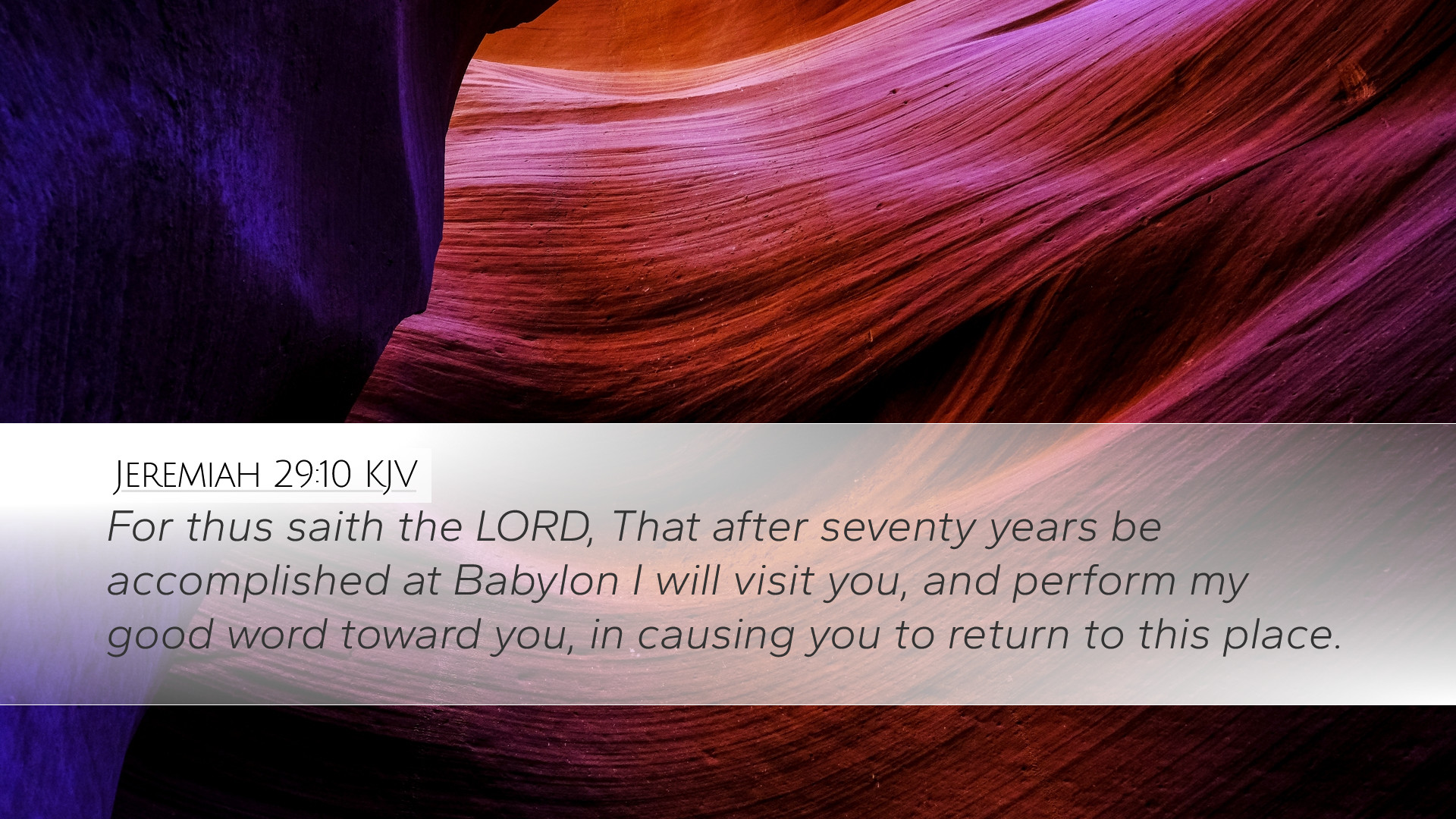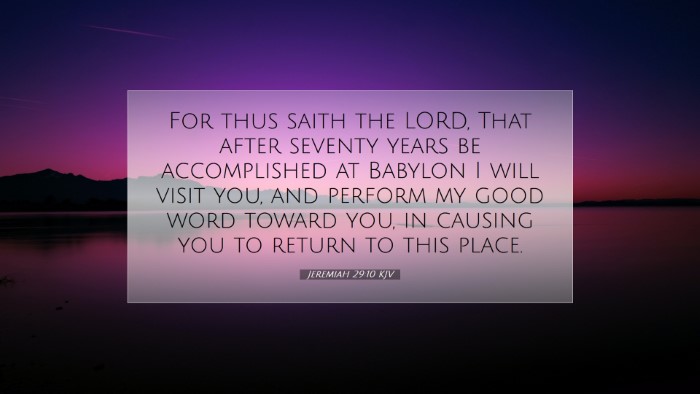Commentary on Jeremiah 29:10
Bible Verse: Jeremiah 29:10 - "For thus says the Lord: When seventy years are completed for Babylon, I will visit you, and I will fulfill to you my promise and bring you back to this place."
Contextual Overview
This prophetic statement by Jeremiah is set against the backdrop of the Babylonian exile, where the people of Judah find themselves displaced from their homeland. The context is essential for understanding God's message of hope and restoration.
Insights from Commentators
Matthew Henry's Commentary
Henry emphasizes the reality of the exile, understanding it as a divine consequence of Israel’s unfaithfulness. He notes that God's promise of restoration after seventy years is not just a prediction but serves as an encouragement to the exiles. They are to consider their time in Babylon not merely as punishment but as a time of spiritual growth. God assures them that He remains faithful to His covenant even in their dire situation.
Albert Barnes' Notes
Barnes offers a detailed linguistic analysis of the verse, highlighting the significance of "seventy years". He argues that this time frame was predetermined by God and denotes completion. His commentary reflects on the importance of patience and faith for the exiles, urging them to trust in God's timing and plan. Barnes asserts that God's visitation implies not only judgment but a benevolent act of restoration, indicating a shift from exile back to communal life in Jerusalem.
Adam Clarke's Commentary
Clarke expands on the prophetic timeline, noting that the seventy years represents a full generation, a significant period for any nation. He discusses the notion of God's promise as both conditional and unconditional—while the exiles may experience suffering, God's ultimate will is to restore them. Clarke emphasizes that the restoration signifies not merely the return to the land but a return to faith and obedience. He encourages readers to reflect on the significance of divine timing in their own lives.
Theological Implications
The verse invites serious theological reflection on the nature of hope, divine judgment, and restoration:
- Hope Amid Trials: The assurance of hope despite circumstances is a recurring theme in Scripture. Jeremiahs' message reassures the exiles that their suffering is not the end of their story.
- Divine Sovereignty: God's sovereignty over history and nations is emphasized. The fulfillment of His promise to bring them back demonstrates His control over timelines and events.
- Restoration and Repentance: The call to return involves a spiritual reform, encouraging individuals and the nation to realign with God’s intentions post-exile.
Application for Today
This passage holds profound relevance for contemporary believers. Pastors and leaders can draw on its themes to encourage their communities facing hardships:
- Encouragement in Waiting: Teach congregations about the importance of patience and trusting God's plan, paralleling the Israelites' wait for restoration.
- Call to Spiritual Growth: Use this verse to urge believers to seek spiritual maturity during challenging times, understanding that trials can lead to deeper faith.
- Community Restoration: Highlight the importance of collective faith and action, inspiring congregations to support one another as they navigate their own "exiles".
Conclusion
Jeremiah 29:10 stands as a testament to God’s enduring faithfulness and the hope that transcends suffering. As believers reflect on this verse, they are reminded that God's plans are ultimately for good, affirming His desire for restoration and reconciliation. The insights from Henry, Barnes, and Clarke enrich our understanding and application of this powerful promise.


